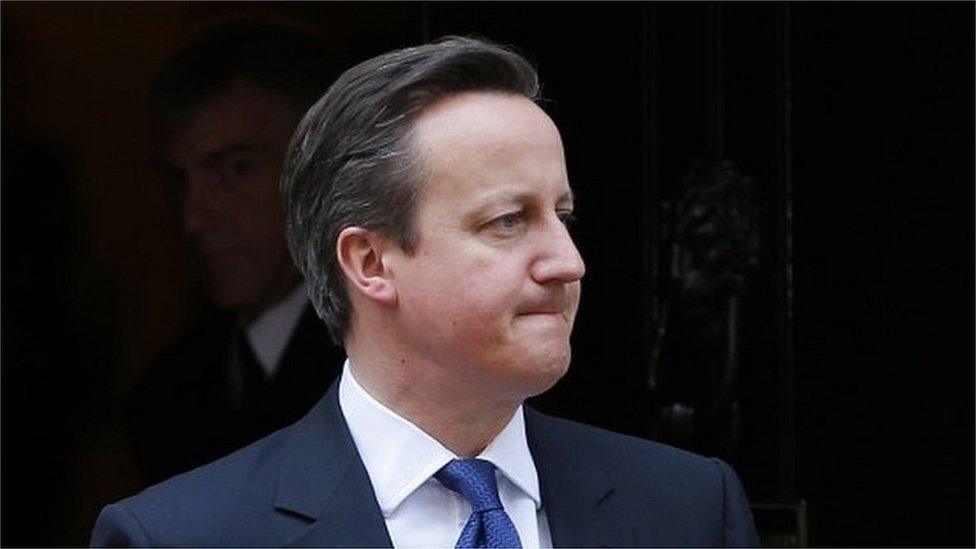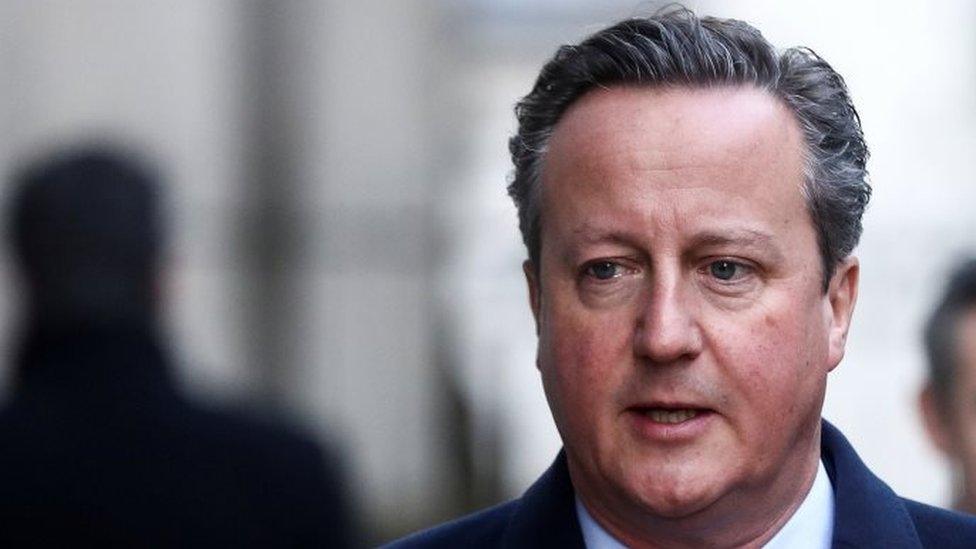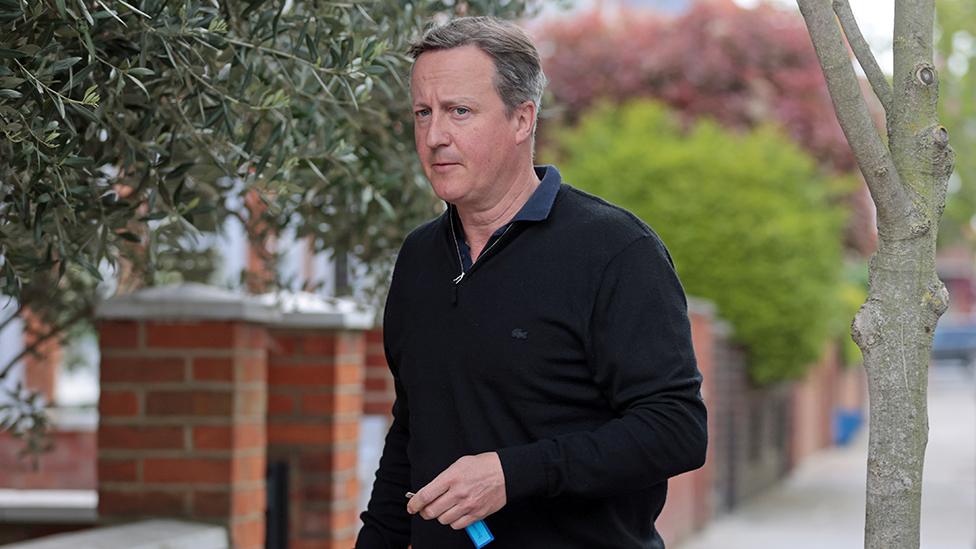Greensill: Labour's long-term plan to attack cronyism
- Published

What former politicians, officials and advisers do with their lives after high office can be troublesome enough.
David Cameron's entanglement with the now failed bank, Greensill Capital, is a particularly acute example of a problem governments have grappled with for years, swearing all the while that they want to crack down on appalling behaviour, but never quite creating sets of rules or structures that would stamp it out.
The revelations about the former prime minister have pushed Boris Johnson to order a review of what happened even if, as we discussed on Monday night, it is likely to have been set up in part to spare the blushes of his current colleagues too.
What emerged on Tuesday, however, seems more curious still. A very senior civil servant (now departed) who had been in charge of huge amounts of Whitehall business, had actually gone to work for Greensill while he was still on the government payroll.

Bill Crothers was the government's chief procurement officer until 2015
Yes, one of the impartial officials who was involved in decisions about government spending was, for a couple of months, working for a bank that wanted government business at the same time.
What might surprise you even more is that the official in question, Bill Crothers, was given permission to do so.
His boss, John Manzoni, who had, like him, spent decades in the private sector before going into government, had the responsibility of signing it off.
And, as Mr Crothers explicitly points out in a letter, his part-time move to Greensill had the backing of the Cabinet Office leadership at the time, and, as explained, was seen as part of his move back to the private sector.
The problem with making a transition or journey back to the private sector is that, for good reason, there is meant to be a strict separation between the two. There is meant to be practical and philosophical distance between what is business and what is politics.
You can read more about Bill Crothers's part in all this here. It is worth noting that the ethics watchdog, by publishing these letters, is perhaps learning to bite.
Its boss, the former cabinet minister Lord Pickles, may be worth a listen when he appears in front of MPs on Thursday.
Politically, this story does not start and end with Greensill or David Cameron. Labour is trying to build a broad attack on the Tories for indulging in cronyism, whether it is the former PM's lobbying, or pandemic PPE contracts, or however the prime minister's expensive wallpaper was actually paid for.
Its push for a vote on an inquiry into Greensill on Wednesday is part of a long-term game.
- Published13 April 2021

- Published12 April 2021

- Published9 August 2021

- Published12 April 2021
